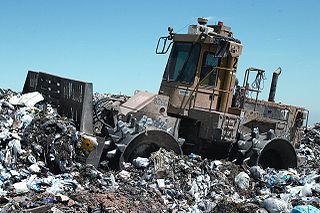New Pyrolysis Project: MSW to Electricity

The project is actually very similar (though not as large) as the $400 million CapX deal that is already up there.
But there’s an issue. Although there is what I believe to be an extremely straightforward path to a power purchase agreement (PPA), it doesn’t exist at this point. And, as I’ve learned over the years, there’s a Catch 22: if you don’t have a PPA, investors are nervous; if you have one, investors (generally) are unnecessary; you simply take it to a bank.
Fortunately, there is something else I’ve learned over the years as well: if you throw enough mud against the wall, some of it will stick. I.e., if you tell your story to enough people, you’ll eventually find the right people – those with an ability and willingness to get on board. And trust me, I’m tough to beat in the mud department.
On a side note, it strikes me that MSW-to-energy will soon be an integral part of all city governments. As the world’s population continues its migration from rural to urban living, and as these consumers generate increasing amounts of waste material of all types, the transition away from landfills and the generation of clean, extremely low-cost energy will become increasingly important. Jesse Berst, internationally known technology and business analyst, founder and chief analyst of Smart Grid News.com, and founder and Chairman of the Smart Cities Council told our audience at July’s webinar all about this; readers are welcome to check it out here, and discover what Jesse means when he says that the council’s motto is “Livability, Workability, and Sustainability.”

how about some real info for example the amount of water in the MSW, or their system of clean burning … etc
I have a great investment opportunity and it is only a $10M deal and with it you get into a automotive electric vehicle company that builds a city/urban based family of electric vehicles. This company will grow to $500M in sales within 4 years; break-evens after first year of production. see video http://www.youtube.com/watch?v=D7lVQDFOSaI&sns=em
Its better to make make a business deal that will grow up to various activities such as Construction & IT Technicals which I am contracted right now. for better discussions contact me at + 27 730 240 543- Email fanuelmascha@ Yahoo.com.
I have a registered company with all documents required ( Ozzie Technical Services (Pty) Ltd
Looking forward from your reply
Thank you
Regards Fanuel (Director)
Craig,
Thanks for the email. There are two problems in your article. 1: You do not list the country and that raises suspicions in my mind as to RoI payments. 2: Emissions. It is all very well to incinerate Municipal Waste to generate power but as Ben above has commented, there is a problem of water content especially if this country is prone to a rainy season. This does have a direct effect on emissions as does the waste content – Who is going to monitor those emissions and enforce a ‘clean burn’ policy? If this is in sub-Sahel Africa, then with the possible exception of south Africa there are political intent problems in almost every country to one extent or another.
It is an excellent idea but I do not see too many investors going for it as they would have very little reassurance as to receiving a full return on their investment.
Thanks, David. Yes, I need to be a bit cagey about what I can make public here. Good point about the rain; I’ll look into that.
Hi David. Emissions are a problem if a open emission system is used for conversion. Syn Tawa Energy uses a closed loop system which has zero emissions during the conversion process. Moisture is definitely a factor as the optimal moisture content is about 25-30%. If wet then it must be dried and, yes, this would affect countries with heavy rainy seasons. Syn Tawa currently has 4 projects in the works, all based in the U.S.
Craig: We agree with your view on this. We offer a way to make profitable products out of the remaining ash, and at low investment. This last amount of “waste” that remains from pyrolysis can be used 100% in all sorts of building or municipal products. As you know this process was commercialized years ago. We would enjoy being a part of this effort.
Yes, I’m very familiar with your fine company; I wish you great success. If there is a way I can involve you here, I’ll be certain to do it.